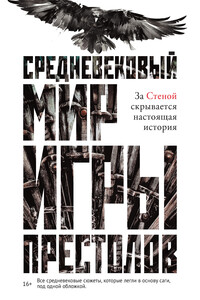40 лет Санкт-Петербургской типологической школе - страница 43
wrink.PF.PPP.PL
«The coats were thin and worn, the kepis (were) wrinkled…».
Removed from any context, one may consider iznoseni «worn-out» and izpomačkani «wrinkled» as resultative participles, since they may be associated with transitive verbs and allow the characterisation of the objects «coats» and «kepis» as affected and changed by a preceding event, but the coordination of the adjective tănki «light» leads to the elimination of the resultative interpretation in favour of an adjectival interpretation. Therefore (5) denotes a state. Syntactically, the construction is predicative for the two following reasons: 1. «to be» does not function as a voice auxiliary because it operates on the past passive participle as it operates on the coordinated adjective tănki «light»; 2. the past passive participle fills the syntactic function of an attribute, and, being a verbal adjective, cannot be treated as a participle oriented toward the patient of the basic transitive verb. More complex is the following Bulgarian example (quoted by [Barakova 1980: 141]):
(6a) Njakoi ot lozjata bjaxa veče obrani i
some of vines be.IMPF.3PL already pick.PF.PPP.PL and pusti
empty.PL
Lit. «Some vineyards were already harvested and deserted».
If one admits that the form bjaxa obrani «were harvested» is resultative because it is formally derived from the verb obiram/obera «harvest, pick fruit» and because it implies a resulting state evidenced by the adverb vece «already», it would be difficult to explain the occurrence of the coordinated adjective pusti «empty». Just as in example (5), the participle is part of the paradigm of adjectives and the utterance denotes a state. As a result, it is impossible to give it either a corresponding active counterpart (6b) or to introduce an agent (6c):
(6b) *Xorata bjaxa veče obrali lozjata i
people.the be.IMPF.3PL already pick.PF.APP.PL vines and pusti empty.PL
Lit. «The people had already picked the grapes and deserted».
(6c) Njakoi ot lozjata bjaxa veče obrani i pusti
some of vines.the were already pick.PF.PPP.PL and empty.PL
*(ot studentite)
*(by the students)
«Some vines were already stripped and deserted».
This analysis shows that the double interpretation which may be assigned to a construction depends on the discursive context. Let us compare the following utterances:
(7a) Kolata e sčup-en-a / poprav-en-a
cart.the is break.PF-PPP-SG.F repair.PF-PPP-SG.F
«The cart is broken/repaired».
(7b) Toj vidja kolata i razbra, če e
he saw cart.the and understand.PF.AOR that is
sčup-en-a
break.PF-PPP-SG.F (7c) Toj vidja kolata i razbra, če e
He saw cart.the and understand.PF.AOR that is
sčup-en-a i posle poprav-en-a
break.PF-PPP.SG.F and later repair.PF-PPP-SG.F
«He saw the cart and understood that it had been broken and later repaired».
From the preceding examples, it is clear that the aspectual properties of the participle can change according to the construction. Examples (7a) and (7b) are of the descriptive type and code the state of the entity. As in (6a), the participle behaves like an adjective, but of verbal nature, and which with the auxiliary constitutes a syntactic predicate. Thus, it seems difficult to speak of the «orientation» of a participle. On the other hand, (7c) belongs to the domain of passivisation, even though the agent is not specified: the participle is oriented toward the patient of the basic transitive verb. The comparison between examples (7b) et (7c) merits special attention as it shows how the adjunction of a coordinated participle (popravena «(is) repaired») leads to the transformation, as noted by Maslov [1988: 77], of the stative meaning of the completive če e sčupena that we identified in (5a) as «an actional passive perfect» («had been broken and repaired»). Thus, the auxiliary transforms the resultative participle into a verbal unit (a passive verb) which functions as a one-place predicate [Desclés & Guentcéva 1993: 91].
If this type of syntactic condition is not limited to Russian, as Maslov



